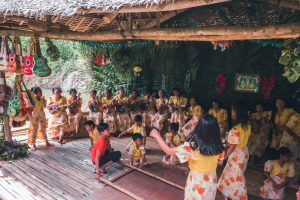What are 5 political rights in the Philippines:The five political rights in the Philippines include the right to vote and participate in elections, freedom of speech and expression, the right to peaceful assembly and association, the right to participate in government, and the right to petition the government.
Introduction
Background of Political Rights in the Philippines
The Philippines, as a democratic republic, upholds the concept of political rights as central to its governance. The following sections elaborate on these rights in the Philippine context ,What are 5 political rights in the Philippines?.
History of Political Rights
Tracing the history of political rights in the Philippines reveals a rich tapestry of evolution. From the pre-colonial era to the present democratic government, the nation’s political rights have shaped its unique identity.
The Philippine Constitution and Political Rights
Constitutional Provisions
The Philippine Constitution serves as the cornerstone for all political rights in the country. The provisions directly related to political rights are multifaceted and encompass various aspects:
Right to Suffrage
Article V of the Constitution specifically covers the right to suffrage, granting every citizen of the Philippines, who is at least 18 years of age, the right to vote.
Freedom of Speech and Expression
Article III, Section 4 of the Constitution guarantees the freedom of speech and expression, allowing every citizen to voice opinions without fear of censorship or reprisal.
Right to Petition the Government
The Constitution protects the right of the people to petition the Government for redress of grievances.
Separation of Church and State
Article II, Section 6 emphasizes the separation of Church and State, underscoring the non-establishment of religion and the freedom to exercise religious preference.
5 political rights in the Philippines
Right to Vote and Participate in Elections
- Eligibility and Process: The right to vote in the Philippines is granted to citizens who are at least 18 years old. They can participate in national and local elections, including voting for the President, Senators, and local officials.
- Challenges and Reforms: Issues such as voter education, electoral fraud, and accessibility are ongoing challenges.
Freedom of Speech and Expression
- Media Landscape: The Philippines has a vibrant media landscape, where freedom of the press plays a crucial role.
Right to Peaceful Assembly and Association
Constitutional Basis: This right is protected under Article III, Section 4 of the Constitution, allowing peaceful assembly for lawful purposes without needing a permit.
Applications and Challenges: Various protests, demonstrations, and gatherings are conducted under this provision. Balancing security concerns with the right to assemble remains an area of debate and reform.
Right to Participate in Government
Inclusive Governance: The Philippines encourages citizens’ participation in government through elections, public consultations, and other mechanisms.
Local Government Participation: Various local government units (LGUs) foster participation through local councils and bodies.
Right to Petition the Government
Legal Provisions: The right to petition the government for redress of grievances is a fundamental right that allows citizens to express their concerns directly to governmental bodies.
Mechanisms and Practices: Various mechanisms, such as online platforms and public hearings, facilitate the right to petition, making government more accessible and responsive to citizens’ needs and concerns.
Comparative Analysis
Political Rights in the Philippines vs. Other Southeast Asian Countries
- Common Regional Values: Many Southeast Asian countries share common democratic values, and this section explores how the Philippines aligns or diverges from its neighbors.

Global Perspective and International Rankings
- United Nations Involvement: The Philippines’ alignment with United Nations’ declarations and its role in various international human rights bodies are detailed, reflecting its commitment to global standards.
- International Rankings:
- Democracy Index: The Philippines’ ranking in global democracy indices, and its implications, are explored, drawing comparisons with other nations.
- Freedom of Press: The country’s position in international press freedom rankings, and what it signifies, can be accessed here.
- Human Rights Metrics: An analysis of the Philippines’ standing in various international human rights measurements, and how they correlate with its internal policies and practices.
- Challenges and Opportunities: The section concludes with an analysis of the challenges and opportunities faced by the Philippines in aligning with international political rights norms and standards.
Recommendations and Policy Considerations
Government Initiatives
- Strengthening Electoral Processes: Implementing measures to enhance the transparency and integrity of elections, including technology, voter education, and fraud prevention.
- Promoting Civic Participation: Encouraging citizens to participate actively in governance through town halls, online platforms, and public consultations.
- Protecting Freedom of Speech: Enforcing and strengthening laws that protect freedom of speech, media, and expression, while balancing with responsible journalism.
Non-Governmental Organizations (NGOs) and Civil Society
- Collaboration and Engagement: Encouraging collaboration between the government and NGOs to foster civic engagement, human rights, and community development.
- Advocacy and Education: NGOs and civil society can play a vital role in advocating for political rights, conducting voter education, and raising awareness on various issues.
- Monitoring and Accountability: Empowering NGOs to monitor governmental actions, promote transparency, and hold authorities accountable for their obligations toward political rights.
Future Legal and Regulatory Considerations
- Digital Democracy: Policies enhance political participation through e-voting and online engagement.
- Balancing Security and Rights: Regulations balance security with protection of political rights.
- Adhering to International Standards: The Philippines aligns with international legal standards on political rights.
